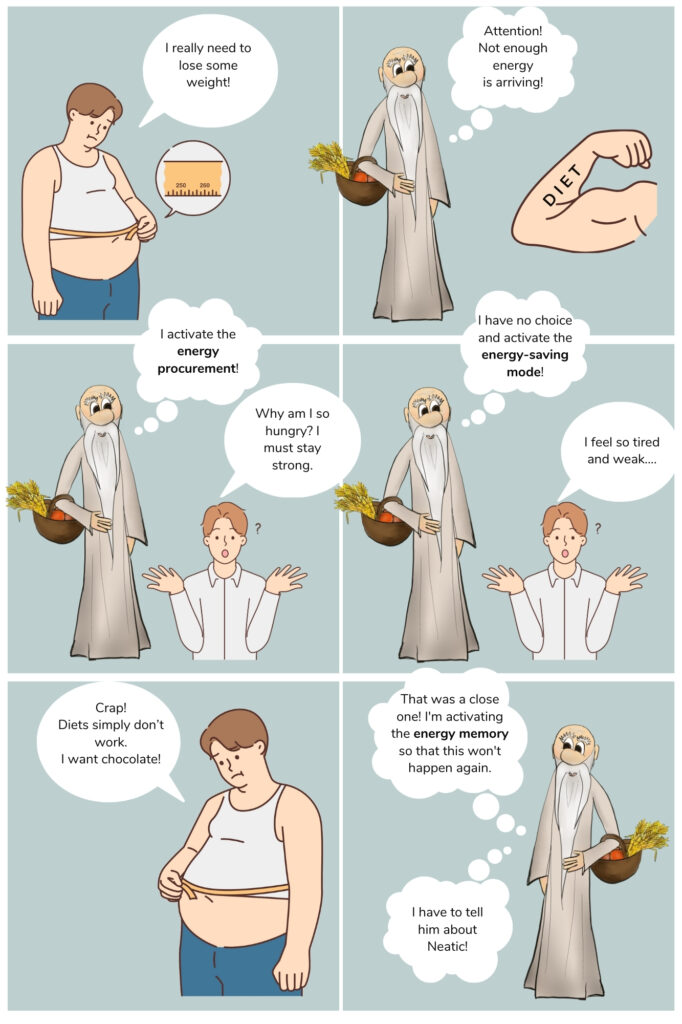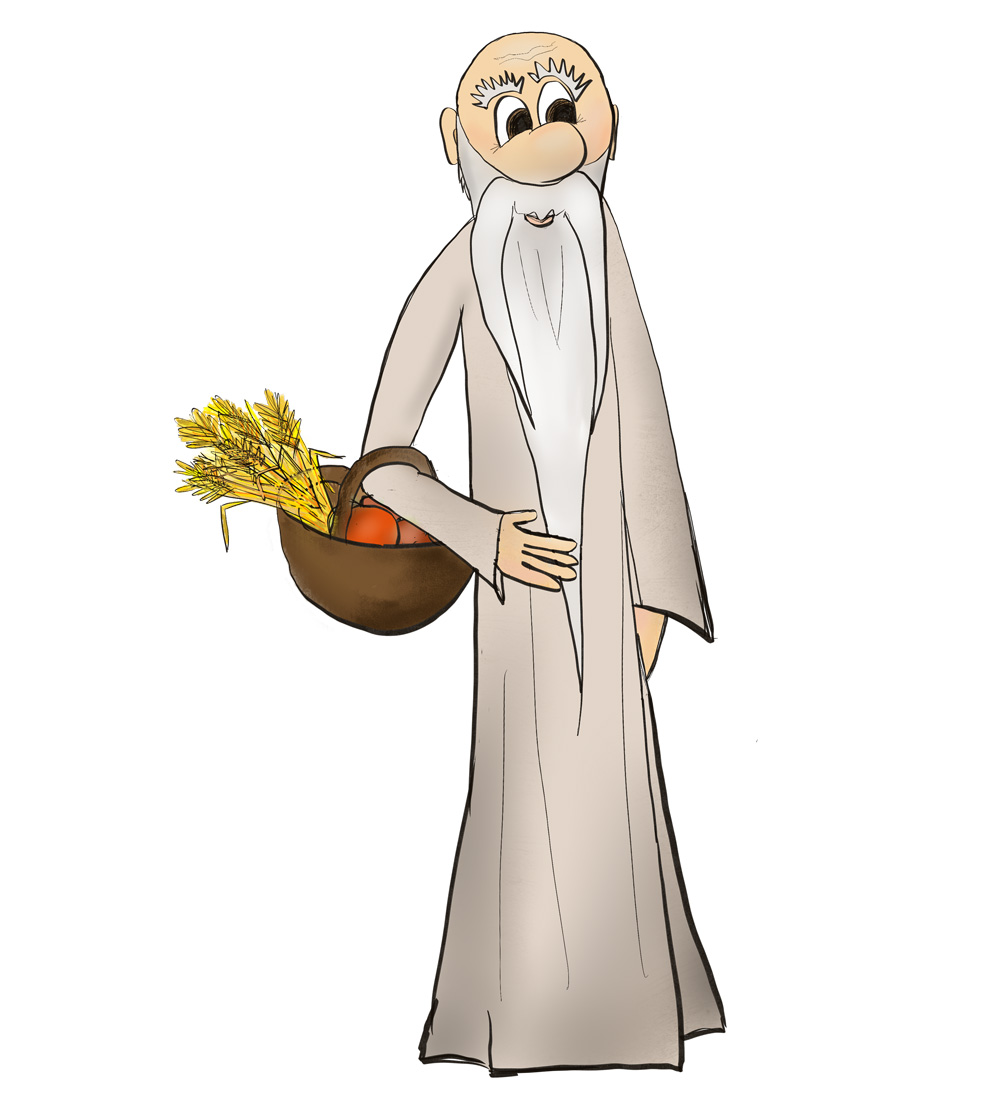
Major points:
- Most diets directly or indirectly restrict calorie intake and end in the dreaded yo-yo effect.
- The homeostatic control of food intake is activated by diets and works effectively against body weight loss. These complex and unconscious processes are simplified with the help of a fictional character, the Survival Genius.
- Neatic is not a diet but a long-term healthy way of eating for well-being. As a side effect, weight loss may occur.
What causes the yo-yo effect?
You may have been on a diet at least once in your life or you know someone who has. There are numerous diets, such as low carb, low fat, Paleo, or calorie counting. Despite their different approaches, all diets share a common goal: the desire to reduce body weight.
Diets often follow a recognizable pattern. In the first weeks and months, weight drops rapidly and you feel overjoyed. Next, weight loss stalls. To counter this, the diet is often intensified, leading to further weight loss. Once the desired weight is achieved, the diet is usually stopped, and the weight begins to increase again. Over time, the initial weight is often regained, and it may even surpass the original weight. This is the dreaded yo-yo effect.
To explain this principle more easily, imagine a fictional character: The Survival Genius.

The Survival Genius is a simplified model for homeostatic eating. It ensures your survival when food is scarce and appears whenever you are hungry. It is ancient, complex, works mostly unconsciously, and keeps you from starving. Your Survival Genius is only fictional. It is not a real person and is not located in any particular part of your body.
In the past, the Survival Genius was especially important during periods of food shortage, such as famine or crop failure. Today, we no longer have food shortages. On the contrary, the food supply is greater than ever before.
So when you go on a diet, you usually restrict your energy intake. Either you count calories or you reduce a larger part of your food intake. For example, on a low carb diet, you stop eating bread and potatoes. With low fat diets, you limit oils and spreadable fats. This also indirectly leads to a reduced energy intake. At the beginning of those diets, you will certainly lose weight and be quite happy with your success.
However, the reduced energy intake tells the Survival Genius that you are facing an emergency since it does not distinguish whether you are “voluntarily” dieting or experiencing a real food shortage. Since it does not know whether the emergency will last only for a short time or perhaps even for several months, it applies all the tricks that have worked well in the past.
The energy monitoring of the Survival Genius senses an imbalance: Too little energy is being consumed and too much energy is being burnt.
So the Survival Genius activates the energy procurement. First, it triggers a feeling of hunger. Then it ensures that your thoughts revolve more and more around food and makes it look tastier than it is. And the Survival Genius does not want to be ignored. It leads you to the fridge. First gently, then more insistently.
Then, the Survival Genius activates the energy-saving mode and cuts back on your body’s energy consumption. You can now survive on a lower energy intake. Thus, you gain weight again despite the same calorie intake. The diet no longer seems to work, although you do everything as you did before. At this point, the diet is either intensified or given up. If you start eating as you did before the diet, your body weight will slowly but steadily increase again. The dreaded yo-yo effect kicks in.
In addition, the energy memory of the Survival Genius permanently lowers your body’s energy consumption. This makes all your future efforts to lose weight more difficult. If you have already been on a few diets, you may have noticed that it is increasingly difficult to reduce weight.
Therefore, having been on a diet is often worse in the long term than if you had not dieted. This is because you most likely regain your initial weight after a while and your body’s permanently lower energy consumption makes it even more difficult to lose weight again. Challenging the Survival Genius with a diet is a bad idea. But since diets lead to short-term weight loss, they surely will not disappear any time soon despite their long-term disadvantages.
Dieting and the associated reduced energy intake are sensed by the energy monitoring of the Survival Genius. It activates energy procurement, energy-saving mode, and energy memory. This causes you to regain weight in the long term despite your best efforts.
What does Neatic recommend?
Neatic is a long-term healthy way of eating for well-being, not a diet. With Neatic, weight loss may occur as a side effect.
Neatic does not challenge the Survival Genius. This means that no foods are excluded that people have been eating for thousands of years. Instead, it focuses on three ingredients that have only entered our food chain in large quantities in the last 100 years and cause obesity: Flavors, sweeteners and sugar.
More information about the principles can be found here.
Click on the following links if you want to learn more about the role of flavors, sweeteners, and sugar in obesity.
